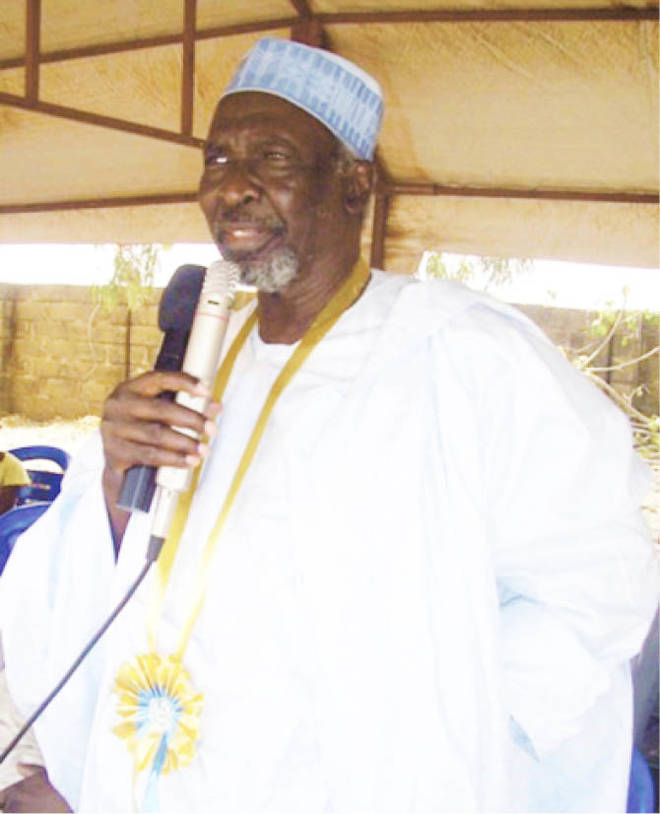A renowned journalist looks back
If you listen to Haroun Adamu as he opens on his career as a journalist in Nigeria during the 70s, you may discover the tremendous respect the government at that time had for journalists in the country. Much of this is captured in his 2002 work titled The Struggle Continues and the section which is […]


If you listen to Haroun Adamu as he opens on his career as a journalist in Nigeria during the 70s, you may discover the tremendous respect the government at that time had for journalists in the country. Much of this is captured in his 2002 work titled The Struggle Continues and the section which is a memo to Obasanjo is worth reading.
A graduate of Yale University, USA he has worked at Daily Times as well as Punch, and he set up Triumph newspaper in Kano. While at Daily Times where Babatunde Jose was the Executive Chairman, in addition to other reports he covered General Yakubu Gowon’s trip to the UN, as well as the revolutionary war in Guinea Bissau. He refers to one particular incident when he was summoned to Dodan Barracks to meet General Olusegun Obasanjo who was Head of State, a summons which saw him travel to Southern Africa on a 3 week fact finding trip, initiated and fully sponsored by the federal government. It is significant that the government turned to the media for help in this rather sensitive matter, and may speak much about press/military relations at the time.
According to Adamu “He (Obasanjo) told me that events were happening at a terrific speed in Southern Africa, but that Nigeria’s government had not got full details of what was happening, and he felt that I should go to Southern Africa,and return to give him a full briefing of what was happening, and what I thought Nigeria should do.”
He recalls “I was shocked at the enormity of the responsibility of the assignment. The work was in two parts: I was to do my normal reporting, and in respect of information which I thought the Nigerian government should have, I was to write a separate report in long hand, and submit to T.Y Danjuma.” Having secured the blessing of Alade Odunewu, Editor-In-Chief, Daily Times at that time, he left for Southern Africa, and visited Botswana, Tanzania and Zambia. These were the country’s whose presidents were connected with what was happening around Rhodesia, Namibia, South Africa itself and Angola, and these countries were known as the frontline states. He found out that though the liberation committee was under the watch of Tanzania, yet the resources were lean, but he also discovered that Nigeria and Nyerere were feuding, owing to Nyerere’s support of Biafra some years back.
His words “Nigeria could not forgive Nyerere for his involvement in the Biafra struggle. I recommended that what took place in the past between Nigeria and Tanzania should be forgotten.”
Next, on acoount of his investigations, he was able to report to Obasanjo that Mugabe was likely going to emerge as leader of an independent Zimbabawe. Botswana’s president was married to a white lady, its radio stations also relied on South Africa. The country could not therefore assist in a manner that will bring victory in terms of the struggle. These were some of the paradoxes which his trip unearthed.
One singular experience is still very alive in his memory “The president of Zambia delayed a flight in order to have a breakfast interview with a journalist. I was stunned …In addition the Zambian president treated me like royalty. I went to Colombo, not by commercial flight, but by Zambian presidential jet. After the meeting where the president introduced me to all the presidents and heads of state, as his Nigerian journalist friend, including Joseph Garba, who was leading the Nigerian delegation, he brought me back to Lusaka.” During the conference, he was jokingly referred to as a Zambaian, he recalls.
As a fallout of the trip, Adamu made a number of suggestions to the federal government captured in the work above “Government should set up a South African Relief Fund to which both the general public and the government should contribute… Nigeria’s outstanding payment of $2,000,000 (two million dollars) should be paid to the liberation committee without further delay… Before the year is out, Nigeria should take a stand either militarily or economically, that would definitely shake the entire South African region.”
He adds “most of these suggestions came to pass. Either they were thinking about it, before I made the suggestion, or they found it useful. If you look at the background of Obasanjo, he was even more radical, he had recommended in one of his lectures that excess military equipment of the civil war should be ferried to Southern Africa, to arm those we were recruiting. There was some thinking along those lines.”
Again, just as apartheid was coming to an end, the government of General Ibrahim Babangida asked Haroun Adamu, and four other journalists, namely, Dan Agbese, Onyema Ugochukwu, Olatuniji Dare, and Felix Adenaike, to travel to South Africa to get a feel of the mood and the situation on the ground. Adamu says “We returned and submitted a report to IBB. The government had some level of respect for the profession, and individuals working in it. There was the use of those in the media profession to help government in policy formulation, and this is what is important. I think this is what the present crop of journalists should take seriously, because people take journalists seriously. Look at the New York Times and the Washingtion Post, see what they are doing within the US political system. Free press is pivotal in a democratic dispensation. I don’t know whether what happened to some of us, is happening now in a democratic dispensation.”
